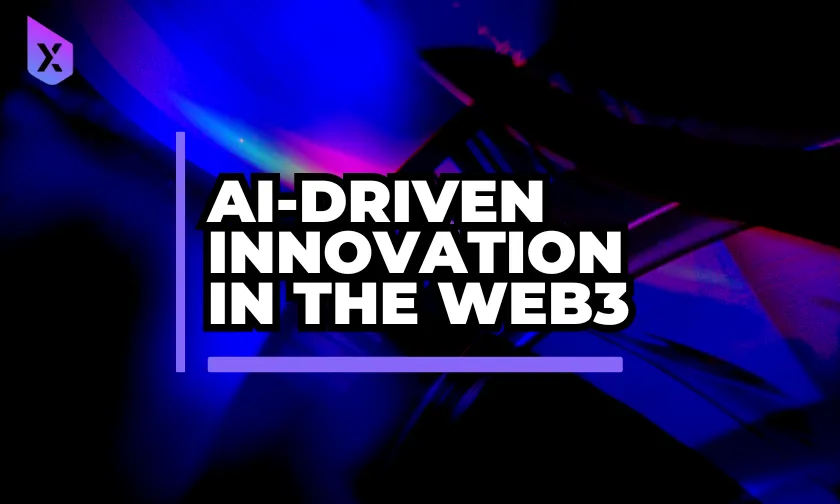AI-Driven Innovation in the Web3 Ecosystem: Opportunities and Challenges
As the digital world continues to evolve, two groundbreaking technologies have emerged at the forefront of innovation: Artificial Intelligence (AI) and Web3.Both have transformative potential, but their combination holds the key to a new era of possibilities. AI, known for its ability to analyze data, learn patterns, and make predictions, is increasingly being integrated into decentralized systems. Meanwhile, Web3, the decentralized web, seeks to empower users by returning control over data and digital assets to individuals rather than centralized entities.
The rise of AI in decentralized systems is a natural progression, as AI’s capabilities in data processing and decision-making can enhance the efficiency and functionality of Web3 applications. From automated smart contracts to AI-powered decentralized finance (DeFi) platforms, the synergy between these two technologies is reshaping the digital landscape.
How Web3 and AI complement each other lies in their shared goals of autonomy, transparency, and user empowerment. While Web3 provides the infrastructure for decentralized applications (dApps), AI adds intelligence, enabling these applications to become more responsive and adaptive to user needs. Together, they create a more dynamic and user-centric ecosystem that can drive innovation across various industries.
Opportunities in AI-Driven Web3 Innovations
The integration of AI into the Web3 ecosystem opens up numerous opportunities for innovation, particularly in the enhancement of decentralized applications (dApps).
Enhancing decentralized applications (dApps) with AI
AI can significantly improve the functionality and user experience of dApps. For example, AI algorithms can analyze user behavior to provide personalized recommendations, making dApps more intuitive and user-friendly. Additionally, AI can optimize the performance of decentralized networks by predicting and mitigating congestion, leading to faster and more reliable services.
AI for personalized and autonomous smart contracts
Smart contracts, which execute transactions automatically when predefined conditions are met, are a cornerstone of Web3. AI can take these contracts to the next level by making them more personalized and autonomous. For instance, AI-driven smart contracts can adapt to changing conditions or user preferences, enabling more complex and dynamic agreements that go beyond simple binary conditions.
AI in decentralized finance (DeFi): Automated trading and risk management
DeFi platforms have already disrupted traditional finance by providing decentralized alternatives to banking, lending, and trading. AI can further enhance these platforms by automating trading strategies and managing risks. AI algorithms can analyze vast amounts of market data in real-time, making informed decisions that optimize returns and minimize risks for users.
Leveraging AI for better data privacy and security in Web3
Data privacy and security are paramount in the decentralized web. AI can play a crucial role in enhancing these aspects by detecting and preventing malicious activities, such as fraud or hacking attempts. AI-driven systems can also ensure that users’ data remains private and secure, reinforcing trust in Web3 platforms.
Challenges of Integrating AI in the Web3 Ecosystem
Scalability and computational limits of blockchain networks
Blockchain, the backbone of Web3, is known for its security and transparency. However, it also faces scalability issues, as processing large volumes of data can be slow and resource-intensive. Integrating AI, which requires significant computational power, can exacerbate these challenges. Solutions such as layer-2 scaling or off-chain computations are being explored, but finding a balance between scalability and decentralization remains a significant hurdle.
Ethical concerns: Bias in AI algorithms on decentralized platforms
AI systems are only as good as the data they are trained on, and biased data can lead to biased outcomes. In a decentralized environment, ensuring that AI algorithms are fair and unbiased is crucial, as any bias can disproportionately affect certain users or communities. Addressing these ethical concerns requires transparency in AI model development and the inclusion of diverse data sets.
Interoperability between AI models and decentralized systems
Web3 is built on interoperability, allowing different decentralized networks to communicate and collaborate. However, integrating AI models across these networks can be challenging due to differences in protocols, data formats, and computational requirements. Developing standardized frameworks for AI integration is essential to overcome these challenges.
Regulatory hurdles: Balancing innovation and compliance
The decentralized nature of Web3 poses regulatory challenges, as traditional legal frameworks may not be applicable. Adding AI into the mix further complicates matters, as regulators may struggle to keep up with the pace of innovation. Striking a balance between fostering innovation and ensuring compliance with regulations is critical to the success of AI-driven Web3 platforms.
Future Prospects: The Road Ahead for AI and Web3
As AI and Web3 continue to evolve, the future holds exciting possibilities for their integration.
Emerging trends in AI and Web3 integration. These trends suggest that we will see more sophisticated AI-driven dApps, decentralized AI marketplaces, and AI-powered governance models in the near future. These trends indicate a shift towards more intelligent and autonomous decentralized systems that can operate with minimal human intervention.
Predictions for the next decade of decentralized AI-driven innovation. This includes the widespread adoption of AI in Web3, leading to new business models, decentralized autonomous organizations (DAOs), and more efficient and personalized digital experiences. As AI continues to advance, it will likely play a pivotal role in shaping the future of the decentralized web.
Conclusion
The integration of AI into the Web3 ecosystem presents both significant opportunities and challenges. On one hand, AI-driven innovations have the potential to enhance the functionality, security, and user experience of decentralized platforms, driving the next wave of digital transformation. On the other hand, challenges such as scalability, bias, interoperability, and regulation must be addressed to realize this potential fully.
The synergy between AI and Web3 can unlock new possibilities in decentralized finance, smart contracts, data privacy, and more. However, overcoming the technical, ethical, and regulatory hurdles is crucial to ensure the success and sustainability of AI-driven Web3 innovations.
As we move forward, it is essential to approach the integration of AI and Web3 with a focus on collaboration, transparency, and ethical considerations. By doing so, we can build a decentralized future that is intelligent, inclusive, and empowering for all.
Copyright © 2024 DeBlockX
All Rights Reserved

